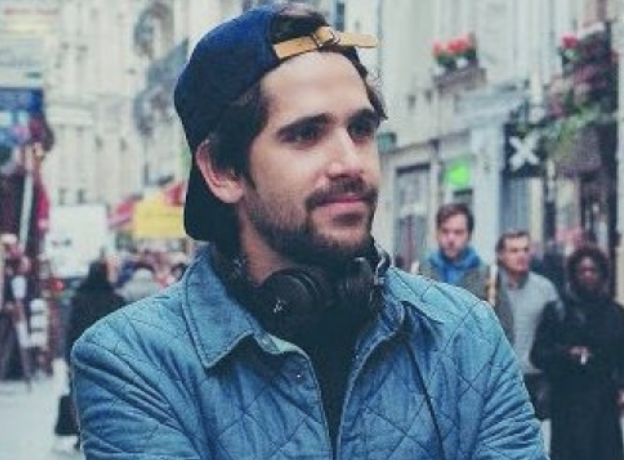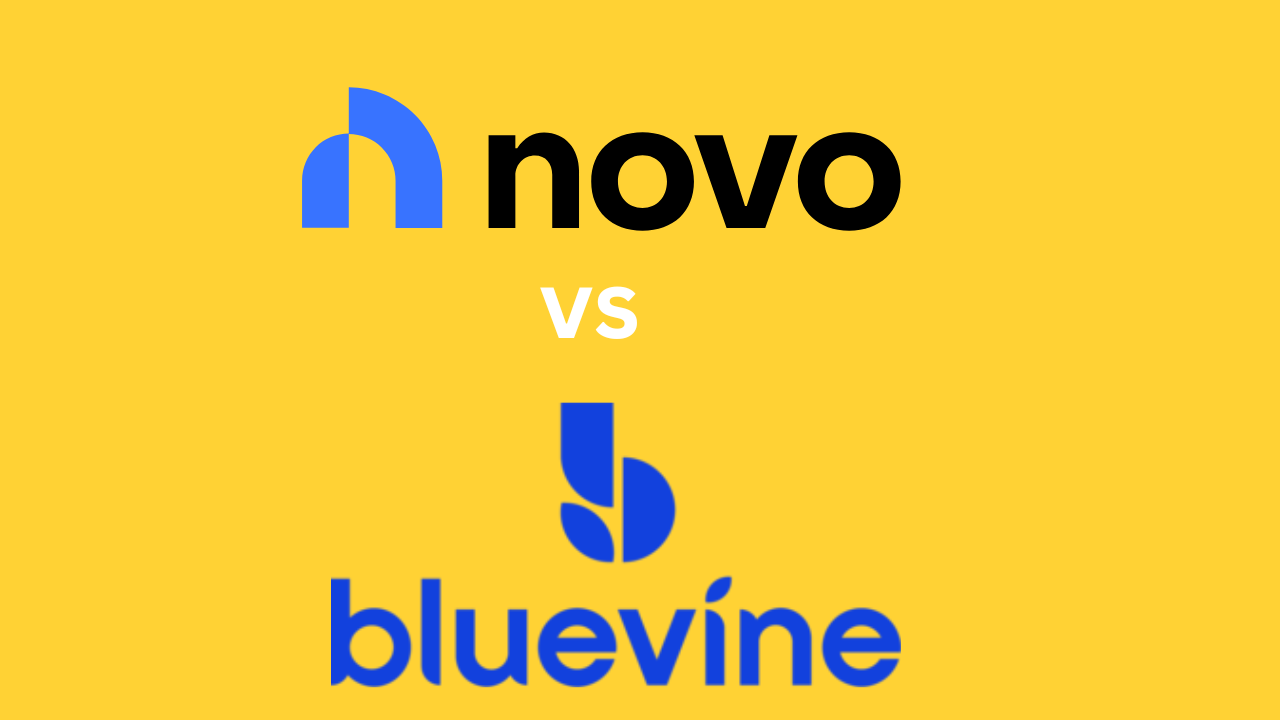Language:
Doola FounderTalks: Meet Entrepreneur Enzo Avigo from June.so
We to talk with Doola entrepreneur Enzo Avigo of June to learn more about their company and experience using Doola.

We had the opportunity to chat with Doola entrepreneur Enzo Avigo of June to learn more about their company and their experience using Doola.
Enzo Avigo’s Bio
Enzo Avigo, a non-US resident from France, is Co-Founder at June (https://june.so/)
June is a lightweight product analytics tool for B2B SaaS that allows you to get actionable insights and custom-built reports in seconds, not hours.
Hear why Enzo and his Co-Founder chose Doola, to launch their US company June
Video Interview
Tweet Summary
Transcript
Minor edits have been made to this transcript to improve your reading experience
00:00:04 Arjun Mahadevan
Today we are joined by Enzo from June and we’re super excited to learn more about Enzo and what he’s working on, which is something which most companies, especially SaaS companies out there, well there might be actually many other types of companies that they could help now today! Thanks so much for coming on. And it’s great to see you again.
00:00:27 Enzo Avigo
Yeah. Excited to be here, man. Always good to chat with you.
00:00:33 Arjun Mahadevan
Awesome. Well let’s actually start with this. Could you just tell me about yourself, and maybe what you were doing before you started June?
00:00:42 Enzo Avigo
Yeah, sure. I mean, it could be a pretty long story, but, the TLDR is that I worked in tech for seven years, six or seven years, and more precisely in products and I worked across different industries, different company sizes, different countries, all over Europe and had really good passion about building great products. I think, and I think I also developed a passion for data because my background was in finance, I used to be a trader before in Asia… seems like a different life. I mixed both of my passions, one is to build a great product and the other one was to be kind of data informed or data driven, mixed that with my willingness to, build something new for the world and bring something new to the world. This is why a couple of months ago I left my very comfortable seat in product and decided to yeah, build my own company for product teams, together with my my amazing co-founder.
00:01:49 Arjun Mahadevan
That’s awesome. I think actually I want to double click onto something. You mentioned that there are many folks out there, in jobs right now, but they have this idea or this thing, this itch that they want to start something.
Was there a moment or is there an explanation in your head, maybe that you realize now, that moment, when you were truly inspired to leave, you said you had a comfortable job… and venture into the unknown and start this business?
00:02:15 Enzo Avigo
Yeah, I think there are quite a few turning points for us. It depends a lot on who you are and what you’re looking for, to make your decisions in life. Some people feel very comfortable taking very big leaps of faith. Some people need a lot of validation or confirmation before they do things right. In my case, I’m in between, I like to take risks, but I also like to take calibrated risk. I started, and had this epiphany that there was a problem I wanted to solve, but I didn’t feel, I didn’t know if it was an important problem, with people who are basically willing to pay. Before I left, I was running these interviews, the morning I was going to work the evening, after coming back to work or sometimes on the weekend and throughout like I think 60 or 80 interviews, I really got a strong validation that people were really excited about the problems we’re going after.
They really wanted to solve it to the extent that they were reading to talk with someone like me that had no project, no product, no solution just was taking up their time. That was one of the turning points finding out about, validating the pain and the willingness for people to pay by launching like some early prototype. I think the last thing was, to have some early believers in the project. It started to have an idea of what was the problem I was going after and what was the solution we wanted to build out a rough shape of what the solution was. We started to bring you to a couple of expert people. One of which was a startup studio in Paris called e-founders, especially one of their partner called Thibault. I remember Thibault really well telling me, like I was pitching him the idea and I was telling them like that I really loved my job.
I was really comfortable… He told me like, look, dude, this doesn’t make sense if you guys are interested in ownership. And I said, yes. He told me like, then there is no way you don’t start your own company because that’s the way to the maximally win. And I think that was like the turning point for us, we thought like, okay, is right. Like let’s take the risk. We have validation. We have these people that are willing, to support us. They’ve seen like endless, teams and project and they know their shit. And they also believe in us. And, in term of like what shape it was kind of also because a better package all in all. I just, I, I was just like bought in, like, there was no reason not to do it besides taking my gut, and make the leap.
So, and actually my co-founder was even, he was actually even more convinced than I was. I think I was the last one to be convinced to take the leap.
00:05:09 Arjun Mahadevan
Wow. Well I think there’s a ton of really insightful things in here, but a couple of things really stand out. I love the term calibrated risk. It doesn’t sound like something where you woke up one day and said, “Hey, I’m going to quit my job and go figure this out.” You were, you were moonlighting, after-work talking to customers, validating the problem. You started with a problem. It sounds like you are also, I guess, sunrising before work. You were talking to customers and validating the problem. You went out, you validated there was a problem.
Also it definitely helps to have the support or the recommendation from trusted experts or partners. It sounds like you had that, those two things and then also a great co-founder and those three things together were enough to really take that step and venture into June.
Maybe with that, tell us about, June. What problem are you solving and how does June solve that?
00:06:01 Enzo Avigo
Problem? Right. So cool. I mean, I mean, it’s a very broad problem space, so I’ll just name it. It’s the let’s name it, the problem to turn users’ behaviors into insight. That’s that’s the, roughly the space, like when you want, you want to make some decisions and you’re building some kind of digitalized product. You have a couple of ways of doing that. One of which is, having a great strategy and you may be just Steve jobs and, just have a strategy and stick to it for five years and deliver the best product in the world are, you may be a very research driven. You may talk to a lot of people like we did, you may observe a lot of what people do and so on. There’s a third thing which is basically being detained form or data driven, depending on where you want to put the cursor.
Right. If you want to be that, which is at least one of the three pillars of every, let’s say tech companies, then today it’s really hard to do it. Like it’s very slow process. It’s very tedious process. It’s very boring. And it requires a lot of expertise. We zoom in one very specific aspect of being data driven, which is how product teams are that driven. And that really comes from our background. We’ve worked in product teams. We’ve like, we’ve tried to be like 10 data forums. And we’ve noticed how painful it is. There is a long journey, but basically it goes from defining your success metric all the way to getting an insight. Across that journey, you basically have, you need to define success, metric instruments, your product document, what you’re, tracking, coming up with the right visualization tool, running craze is case you have a tool that requests queries, and then being able to turn that into insight and then, share these insights with your team.
You go back to the beginning and again, you have to do the whole journey, right? And that whole journey is like completely broken. Like you need several tools, at least four or five, several, disciplines, engineers, QA, a product person, a non-marketing person, but that is a business person. It just gets lost into the weeds of the development process. So we thought we would tackle that. Our vision is basically to build the most simple product ethics. So it sounds very basic, right. Just focus on the word, simple, like building something that anyone can use, not everyone because everyone doesn’t care about pregnant antics, but anyone that is willing to sell something, some data can use and it’s guided to get to results. This is what we’re building today. So there is no set up. There is no handovers. There is no expertise to be built. You’re being fully guided and, we don’t stop.
We have a result. We start with an insight. Yeah, basically it’s a template based in short, it’s a template based analytics that helps you from what you should measure and understand and help you understand what you should measure up to the insights and telling you what you do, and then help you get back to your work and talking to your customers, basically.
00:09:14 Arjun Mahadevan
That’s awesome. I love, the focus on the user; user behavior to use their insight in the most simple way.
I think everyone knows it’s good to be data-driven, but we’re drowning in data. There’s more data being created now than ever before. It sounds like, “Hey, we want to make that accessible too.” I like that: “anyone not everyone”, because not everyone maybe needs data, or it’s not as integral to what they’re working on. The focus on products sounds like you and your co-founder first, you have a lot of expertise there specifically. So cool. Sounds like you’re tackling like a problem, which most tech companies, and maybe even any product teams are facing.
How did you then decide to formalize the business? Take this from, “Hey, there are people out there who have this problem. We want to build a business.”
When did you decide, “Hey, it’s time to actually create a business and formalize that?”
00:10:05 Enzo Avigo
Right? So this came pretty late actually. This ends pretty late for 32, and I’ve always been convinced that you don’t need to, formalize the business to start the business. Right. Early in the early days, actually the product was not called June. The company was not called June. It was called Product Analytics. Actually, I think my Google Drive is still called Product Analytics. We started by a space and we started by a problem space, and we knew there was broken. We knew by zooming in, we are going to be able to build or start to build the solutions, but we didn’t know yet where we’re going to zoom. If we had to pivot it, also some of the strong tips that people give you is like, don’t fully know what your MVP, right. Don’t fall in love with the first solution we built you build. We started there, right? And the moment we started to formalize the business was when we knew were editing in the right direction.
Right. It’s, it’s like recruiting for us. It was okay, we know where we’re going. We know we just need to double down. We just need to make it happen. We need to put that in our customers and not the prototype. That’s a good beta, like working product that they will be paying for and paying more money than today. To get there, we need to have like a more structured, like, press like venture, like for a couple of reasons, right? One of which is you want to get the intellectual property to the company. You wanna make sure that, the companies above the people, you want to do everything for the success of the company. One of the way to do that is actually to formalize the company. The second one is, as you start raising money, it doesn’t work to raise money from angel or VC and put that on your personal bank account.
Like there is no way anyone serious out there will do that. You may do it, but even if you do that, if you want to transfer your personal money to company bank account later on, I’m sure you go through some crazy, pretty crazy clearance processes. The last one is for recruiting, right? Obviously, if you want to recruit the best people you want to have this entity that can recruit them, following all the rules regulations in the countries where they operate. As soon as you roll out like stock option packages, whatever you absolutely speed the venture. For us the first day, and this is where you and I, we met was okay. We know we want to build the venture. We know we want to make it happen. This is not an expertise we have, who can help us get that done that we trust. Cause it’s quite big, quite a big deal for us.
And and yeah. Just make it happen like anything else.
00:12:52 Arjun Mahadevan
Got it. I think that there’s a… I really liked that… I think this is a great message to everyone. You don’t need to have an official business to start working on the business and validating it.
At a certain point, it sounds like, I liked the way you highlighted this was to take investment. You actually might need a company, or it makes things a lot complicated to not have that set up from the beginning and from a recruiting perspective and, giving stock options, et cetera, you also might and will need the entity too. That makes a ton of sense there.
That I do remember that is when we met, if you can remember, and time travel back to then, were you looking into a lot of different companies or options forming your company? And as you mentioned, this is something you didn’t have expertise in.
How did you end up deciding to go with Doola? What options were you looking at?
00:13:42 Enzo Avigo
Yeah, so were based in France, right? So, and were going to incorporate it in the US for a couple of reasons, including, and mostly, I would say taking the money in from the US we got the, I think we got the list that typical non us companies will have, which is a short list of the top three, two or three platforms that everyone goes on. Stripe Atlas, Clerky. I think there was a third one. I think there was a third one, and we wanted to go quite vanilla. We wanted to go with something fairly simple, but something more advanced than plain vanilla. We want to do something like, get the stages up and running, blah. I remember we wanted to do the 93 B, is it 93, 83 B? 83 B was one of the forms.
Right, so that was one thing. The other thing was we were broke. We are not American citizens, as you can tell with my accent. We wanted a little bit of support. Like we didn’t want just send something on Stripe and Clerky and it’s great, but they had like thousands of customers. Like, there is no way we get instant feedback from them if anything goes wrong. We want to do more like an end zone, supports, and like processes. I think this is where we started to look for that ideal solutions. We didn’t see any, the closest to being, we found from that was some very expensive lawyers that were not specialized in that, but they were willing to do it. We thought that we may do that. At the same time, we may overinvest into that because it’s funding the company.
At the same time, we’re fairly confident that, there are lots of like setup which have been like, which are duplicatable, right. It’s just something that people have done again and again, and this is where you and I, we met, I believe we met, through my co-founder virtue because you guys were on the end on deck, fellowship, right. The same fellowship. Correct. Right. First show talked to me and was like, yeah, there was this guy, these guys doing, they’re doing Doola and it’s exactly what you get, which were looking for. What do you think? And it was like, okay, let’s take a call. And then the rest is history.
00:16:02 Arjun Mahadevan
Well, I actually really like what you said, you were looking for vanilla, but with a little spice and spicy with support. Also, I think another thing you highlighted was as foreign founders, I think there are things which are unique to that circumstance or situation where hopefully other people/someone might have that expertise. I think that’s a big reason why my partner and I started to work on this as we felt that this is really painful. There’s not enough support out there, but it’s still a process which with some support and a little more spice can really be, we can deliver a fantastic experience.
Let me ask you this, in those conversations with Ferruccio, were you ever worried about us possibly being a scam?
00:16:43 Enzo Avigo
Yes, were. The thing that, of course, was because it’s like any online services. Right. And, I think we lift up this, worried very early on when you and I would take, we took an intro call. I think there are two things that lifted my worries. The first one is we took an intro call. I felt you were like, in French, we said like, you like stood in your feet and your shoes, like you were like, it seems like you seem like an honest person and so on. The second thing is like, we have the same background, I think you were product person? Right.
00:17:24 Arjun Mahadevan
I did, I used to be a product manager at Dropbox, actually.
00:17:27 Enzo Avigo
Right. I just met so many product people in my life and I would honestly trust like 80% of them, at least, because they’re just, the end-all to so much stuff in their teams they belong to usually. Right. They’re not there, you know, depends. Most of the cases, they’re like, they’re very responsible people. Right. I thought, okay, what funding and company is a one off process. Right. So you guys help us. It’s not like in 10 years where we’re stuck with you, right. Like if we have more things we want to do with you, we can do it with you. If we have follow up, we can do it with you. All, it’s not a process which is going to seek us. Right. That’s, that was one thing we call them reversible that’s a reversible decision, but like, one of the decisions, right? you seem like a very trustable person.
I had to double-check, which is what you do as well and then I did. I was like, okay, it doesn’t seem like a scam. Let’s do it.
00:18:25 Arjun Mahadevan
But no, hey, I think it’s… thank you for your candor there. I think… I think we’ve all had that experience of wondering, “Hey, this is for real.” But yeah. your words, your kind words mean a lot here, and it’s been awesome getting to know you and to see the progress you’ve made in this short amount of time, really, fast.
And so let’s finish up with this. I’m actually going to combine two questions here.
If you could give any advice to entrepreneurs out there, what would it be?
And I’m going to make it a little trickier: the advice can only fit on a billboard.
So you’re on the highway. It’s a billboard. The text has to be kind of big too. You don’t have much text to type.
What advice would you give? What would give on that billboard?
00:19:05 Enzo Avigo
I’ll just tell the YC one. Cause I keep hearing it these days: make some thing that people want.
That makes sense. Yeah. That’s the most important one make something that people want because all the rest will just like collapse. If you don’t, if you don’t do that, like, you can be great and have a great vision tackle a great problem. Have a great team, no matter what you want to assemble together. If you don’t nail that one, build something that people want, then all the rest would just not survive. You know, the six word response. So work on this one.
00:19:40 Arjun Mahadevan
I love it.
00:19:43 Enzo Avigo
The problem you are trying to fix could be a problem that you have most likely, or that you have had.
00:19:49 Arjun Mahadevan
Okay, love it. To everyone out there: make something people want. I think that’s a really great driving force and a great question to continuously ask yourself.
So this was a ton of fun. Thank you so much for coming in today and everyone out there. If you are looking for a way to turn user behavior to insights in the most simple way, check out June, we’ll provide the links too, Enzo have a great rest of your day. Hopefully when the pandemic is over, we can meet up in person and chat as well.
00:20:20 Enzo Avigo
Likewise.
Find Enzo Avigo Online
Website: https://june.so/
LinkedIn: https://www.linkedin.com/in/enzoa/
Keep reading
Start your dream business and keep it 100% compliant
Turn your dream idea into your dream business.















